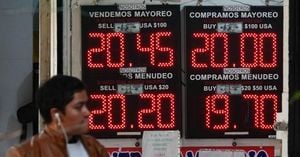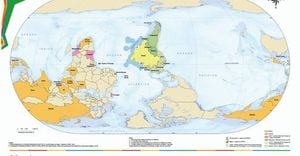The Thai Ministry of Finance has announced a significant plan to expand the Value Added Tax (VAT) system to include small business operators earning less than 1.8 million baht annually. This initiative aims to tackle the issue of businesses reporting lower incomes than reality, thereby increasing government revenue. Deputy Prime Minister and Minister of Finance, Mr. Phichai Chunhawachira, highlighted that a growing number of young entrepreneurs are opting to run their businesses while avoiding VAT by keeping their reported income below the 1.8 million baht threshold. This not only allows them to evade VAT but also enables them to benefit from high fixed deductions.
Under the proposed changes, the Ministry of Finance is considering implementing a special VAT system for businesses with incomes below 1.8 million baht. This system would allow these businesses to pay VAT at a lower rate, potentially around 1% of their annual income, similar to models used in various European countries. If successfully enacted, this plan is expected to generate an additional 200 billion baht in annual revenue for the government.
For instance, a business generating 1.5 million baht could deduct 60% of expenses, resulting in a taxable income of only 600,000 baht, which would translate to a minimal tax payment of just a few tens of thousands of baht per year. This new approach aims to alleviate the budget deficit, which currently stands at 4.4% of GDP, and hopes to reduce it to 3.5%.
Mr. Phichai emphasized that enhancing government revenue through taxation is a necessary measure, especially since cutting public expenses is challenging, particularly regarding the salaries of nearly three million civil servants, which cannot be easily reduced. Currently, Thailand's tax revenue is only 15.5% of GDP, down from a historical high of 17%. Therefore, pushing small businesses into the tax system is seen as a long-term strategy to increase revenue and lessen reliance on borrowing.
However, small and medium enterprises (SMEs), particularly those at the lower end of the income scale, may face immediate cost burdens due to VAT, even at a low rate of 1%. This could adversely affect cash flow, especially if they lack robust accounting systems, necessitating investment in accounting services or document management systems. Additionally, there is a risk of retroactive audits, which could discourage new entrepreneurs from continuing their businesses due to perceived burdens of the new tax system.
In a related development, the Bac Lieu province in Vietnam is grappling with economic growth challenges, failing to meet its ambitious targets. The provincial committee and local government have been actively working to implement various strategies to stimulate local economic development. Despite a target growth rate of 9% set for 2025, the province's economic indicators have shown a decline.
As of early 2025, Bac Lieu reported a growth rate of only 6.39%, falling short of the 6.5% target for the first quarter. The industrial and construction sectors achieved only 96.59% of their goals during the same period. Moreover, electricity production has seen a decline, with commercial electricity down by 4.2%, wind energy production down by 21.42%, and solar energy down by 7.4% compared to the previous year.
Investment capital from the state budget is currently at a low 9.19%, and the province has struggled to attract new investment projects. However, as April 2025 approached, there were signs of slight economic recovery, with significant improvements in various sectors. Aquaculture production increased by 6.87%, and retail sales of goods and services rose by 8.25%, though these figures still fall short of expectations.
The Bac Lieu government is focusing on urgent and decisive actions to address current economic issues and achieve high growth rates. They are prioritizing important tasks such as restructuring the economy, renewing growth models until 2025, and adjusting strategies for 2030. Plans include modernizing industrial and service sectors, enhancing productivity, and applying advanced technologies.
Furthermore, the province aims to achieve an 8% growth rate in both economic and public sectors by 2030. This includes promoting the digital economy, green economy, circular economy, and innovative economic models. The government is also improving the quality of community development to meet the standards of advanced rural areas, gradually reducing development gaps between urban and rural regions.
Efforts are underway to strengthen industrial production, particularly in renewable energy, electricity, and seafood processing industries. The provincial government is also focused on promoting trade and expanding local markets for agricultural products, utilizing national support programs and free trade agreements to enhance export markets.
By 2573, Bac Lieu plans to achieve significant growth in both economic and public sectors and has proposed solutions to boost investment in the region. The government is enhancing planning and promoting the export and import of goods, particularly agricultural products, to support sustainable development at various levels.
As Bac Lieu navigates its economic challenges, the need for innovative solutions, bold planning, and effective execution remains critical. The government’s commitment to fostering an environment conducive to growth will be vital in overcoming current hurdles and achieving the desired economic outcomes for the province.




